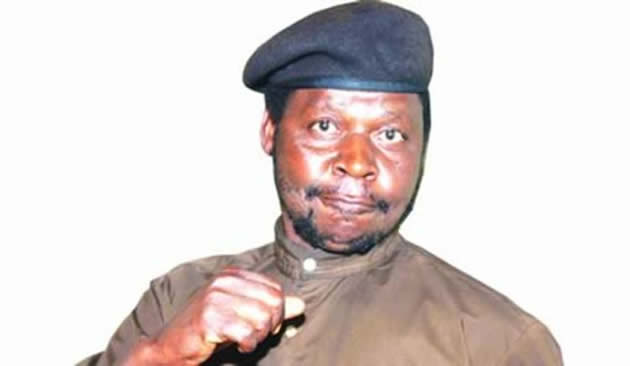The cost of being a successful African footballer

Cameron Duodu Correspondent
I know of cases where family members have received regular sums of money to complete a building and have reciprocated by sending photographs showing the progress being made — only for the photographs to turn out, in the end, to be of other people’s buildings! The idea of having been taken for a mug is what is most difficult to accept, in such cases.
HAPPINESS begins at home, they say. But when an African goes to the Diaspora and becomes wealthy, by no means does it ensure a happy family outcome.
Successful relatives in the Diaspora are often celebrated back home.
Sadly, too often, their own relations also exploit them as well.
It’s hard to pity an African footballer that has made it big in Europe, with their glamour and wealth, isn’t it?
But remember this: some of these guys are often brought up in very poor homes and are often exploited by businessmen, dodgy agents, and others who see them as their meal ticket.
It isn’t just unscrupulous strangers that African footballers abroad must watch out for, but their own families in Africa too.
Family members hear of the large houses, servants, fast cars and beautiful girls that line the route of the modern football star’s ego trip.
And they want some.
Emmanuel Adebayor, the Togolese international, African Footballer Of The Year in 2008, who achieved fame with Metz, Monaco, Arsenal, Manchester City, Real Madrid and Tottenham Hotspur, is one such victim.
In what can only be described as a “stinker” penned on his Facebook page in early April 2015, he let it all hang out.
He wrote: “It’s true that family matters should be solved internally and not in public, but I am doing this so that hopefully all families can learn from what happened in mine.”
He went on: “At the age of 17, with my first wages as a footballer [he was then playing for the French Ligue 1 team, Metz], I built a house for my family and made sure they are safe. [When] I . . . received the trophy of African Player of the Year in 2008, I . . . brought my mother on stage with me to thank her for everything. In that same year, I brought her to London for various medical check-ups.
“[However], when my daughter was born [and] we contacted my mum to inform her, . . . she immediately hung up the phone and didn’t wanna know about it . . . Some people said my family and I should consult [the Nigerian ‘prophet’] T.B Joshua.
“In 2013, I gave my mother money so she could consult him in Nigeria. She was supposed to stay for 1 week; but 2 days into her stay, I received a call saying she [had] left. Apart from all that, l also gave my mother a great amount of money to start a business [involving] cookies and different items . . . What else can a son do . . . to support his family?
“A couple of years ago, I bought a house in East Legon (Ghana) for $1.2 million. I found it normal to let my older sister . . . stay in that house. I also allowed my half-brother . . . to stay in the same house.
“But a few months later, I was on vacation and decided to go to that house. To my surprise, I saw many cars in the driveway. In fact, my sister [had] decided to rent out the house without me knowing. She had also kicked . . . my [half-brother] out of that house.
“Note that the house had about 15 rooms! When I called her and asked for [an] explanation, she took about 30 minutes to abuse and insult me over the phone. I called my mother to explain the situation [but] she did the same as my sister.”
More than football
Adebayor’s sad story is typical of what many successful people who have made it in the “African Diaspora” experience.
The area of sharpest familial dispute almost always involves land and/or buildings.
A guy goes on holiday at home and decides that it is time to put up a building.
So he tries to obtain a plot of land.
But land matters are very complicated in Ghana, and before the guy can lay hands on the documents proving absolute ownership of a plot, he has to return to his place of employment.
Often, if he has paid any money for the plot he wants to buy, he can now kiss it goodbye.
Stories would be woven for him about how the alleged owner of the land was not the true owner at all; and how a new owner had appeared on the scene who must be paid off; otherwise a long and costly litigation would ensue; and anyway, he knew how corrupt the courts were in Ghana.
In other instances, a guy might actually obtain the land and start putting up a building.
But then, he has to go back overseas to work, in which case he hands its completion to a “trusted” family member.
I personally know of cases where family members have received regular sums of money to complete a building and have reciprocated by sending photographs showing the progress being made — only for the photographs to turn out, in the end, to be of other people’s buildings!
The idea of having been taken for a mug is what is most difficult to accept, in such cases.
One more thing: some of us Africans like to give our dead relatives a decent send-off, and the “most unkindest cut of all” occurs when this worthy sentiment is exploited to fleece us.
“Oh, you needn’t come yourself for the funeral — just send some money!”
In one case, a friend received a text message saying he should send down two thousand pounds for the burial of his uncle.
But he was wise to the ways of his folks back home and texted them thus: “My uncle never handled more than one thousand pounds in his entire life. If, now that he is dead, you want to spend two thousand pounds to bury him, you are welcome to do so. But as for me, what I have is what I will send to my younger brother to bring as my contribution.”
And he sent down three hundred pounds.
In another case, a friend received a heart-rending telephone call from his sister: “Your nephew so-and-so went and impregnated a young girl, who lost her life giving birth to a baby.
“The girl’s parents are threatening all sorts of things — they are even mentioning suspected abortion — which could put your nephew behind bars. I need some money immediately to go and placate the girl’s family.”
“How much?”
“Seven hundred pounds.”
The guy sent it.
When he visited home later, however, a beautiful, brand-new Suzuki motorbike that was parked outside the family house attracted his attention.
“Hey — whose bike is that?” he asked. He was told that it belonged to the nephew.
“I felt sick to the stomach!” the guy commented.
“It wasn’t the money, but the fact that my own sister could hit me in the emotional solar plexus with emotional blackmail so hard in order to manipulate me to finance the playboy lifestyle of her good-for-nothing son! I mean, he will use the motorbike to continue putting young ladies in trouble, would he?”
The thing is, some of the folks back home believe that the streets of London, New York, Paris, Frankfurt or Amsterdam are littered with gold, waiting to be collected and shipped back to the “unfortunate folks” at home.
The sad thing is that in putting undue pressure on the “Diasporans”, they end up killing the goose that lays golden eggs. For instance, partly due to the psychological assaults he has endured from his family, Emmanuel Adebayor’s form has deteriorated, and he’s now more often seen on the reserve bench than on the field of play.
And many “Diasporans” have a positive fear of going back home. Maybe they can go for a month or two. But to resettle?
When I was growing up, my father bought us a dog and gave it a peculiar name: “As if they loved you!” I ask: who in his right mind, would like to endure the hardship of harsh winters, only to go and spend whatever he has been able to save, among people who behave “as if they loved” him, but actually do not?
Cameron Duodu (born 24 May 1937) is a UK-based Ghanaian novelist, journalist, editor and broadcaster. After publishing a notable novel, The Gab Boys, in 1967, Duodu went on to a distinguished career as a journalist and editorialist. This article is reproduced from New African magazine.











Comments